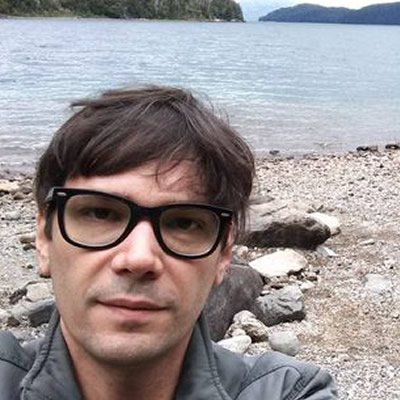
Yamil Burguener is a multimedia artist, composer, programmer and geek. Argentine, lives in Córdoba. It focuses its activity on new media and interactive communication, from the use of various physical interfaces and the programming of algorithms.
He has presented his works and productions at important festivals and/or universities: Synthese (Paris), the International Rostrum of Electroacoustic Music (Rome), Mutek (Buenos Aires). Hugh Hodgson School of Music University (Georgia), International Festival of Contemporary Music (Bogotá). Dorkbot.mvd (Montevideo). University of Offenbach (Frankfurt). Outside! International Exhibition of Contemporary Art. (Cordova). Museum of Contemporary Art (Santiago de Chile). eTOPIA_center for art & technology (Zaragoza), Anilla Cultural MAC (Santiago de Chile), etc. Awarded by the National Fund for the Arts, the Municipality of Córdoba, Goethe Institut, UNC, Recoleta Cultural Center, MAMba, CCEC, LimbO, FARME, Radio Nacional, Junta de Andalucía (Spain), “Cabeza de Vaca” Distinction (Córdoba) , Teatro Colón, UNESCO MECAD/ESDi, AECID, Espacio Fundación Telefónica (Buenos Aires), where he won the 1st prize of the MAMbA Award, Fundación Telefónica Arte y Nuevas Tecnologías. https://yamilburguener.com.ar/

Elena Castro Córdoba (Madrid, 1993) graduated in Philosophy (Complutense University of Madrid) MA Gender, Media and Culture (Goldsmiths University) is a FPU predoctoral researcher at the Complutense University of Madrid where she is doing a doctorate in feminist studies with a thesis on temporalities queer and affect theory. She is also co-mother of Feminist Ontologies, a cultural and artistic production project specialized in virtuality and activities with a feminist perspective.
As a cultural researcher, she has co-curated/organized “Nueva Sinceridad” (Injuve 2018, Buenos Aires 2022), “Feminist Ontologies. Divine and precarious youth” (La Neomudéjar 2019), “Night Sanctuary” (Youth Art Hall of the Community of Madrid 2020). He has given workshops, conferences and collaborations at/with Storm & Drunk (Madrid) UCM (Madrid) Sala Amadís (Madrid) Sala de Arte Joven de la Comunidad de Madrid (Madrid), Hangar (Barcelona), CAAM (Las Palmas), Quinta da Cruz (Viseu), SAC (Las Palmas), La Casa Encendida (Madrid), Matadero (Madrid), Kirchner Cultural Center (Buenos Aires), Bartlebooth Mag (Madrid/Galicia), Sala Beckett and UOC (Barcelona), Primavera Pro (Barcelona), TEA (Tenerife) among others. https://www.ontologiasfeministas.com/

Claudia Giannetti is a specialist in contemporary art, aesthetics, media art, and the relation art–science–technology. A theoretician, a writer, and an exhibitions and cultural events curator. She received a multidisciplinary training, that has been crucial in her subsequent professional development: music, Business Science, and History of Art, with a Ph.D. in Art History from the University of Barcelona. She was born in Belo Horizonte.
In the last 18 years she was director and/or artistic director of institutions and cultural centers in Spain, Portugal and Germany: Associació de Cultura Contemporània L’Angelot, Barcelona, the first space in Spain specialized in electronic art; MECAD\Media Centre of Art & Design, Barcelona; Canariasmediafest – Internacional Arts and Digital Cultures Festival of Gran Canaria, Las Palmas; Fórum Eugénio de Almeida, Évora, Portugal; Edith-Russ-Haus for Media Art, Oldenburg, Germany. https://www.artmetamedia.net/

Alicia Iglesias Cumplido has a PhD in Art History from the University of Seville. At this University, she works as a professor and researcher. She belongs to the Vanguardias, Últimas Tendencias y Patrimonio Research group. Her research focuses on contemporary artistic movements, especially Andalusian authors, about which she has several different publications in prestigious magazines. She is a speaker at multiple seminars and congresses. She is also co-director of this event and is preparing a digital arts exhibition in 2023.
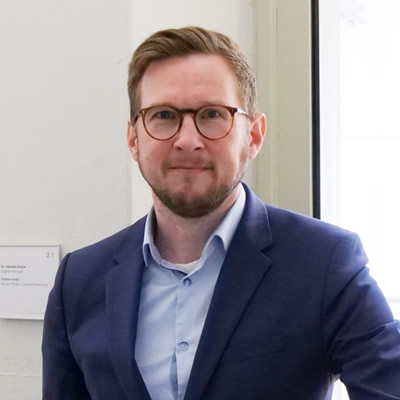
Harald Klinke is currently teaching Digital Art History at the LMU Munich, Germany. He studied art history, media theory, painting, philosophy and business informatics in Karlsruhe, Berlin, Göttingen, and Norwich (UK), and received his PhD at the Hochschule für Gestaltung in Karlsruhe. From 2008 to 2009, he worked as a Lecturer of Visual Studies (Bildwissenschaft) at the Art History Department at the University of Göttingen, where he developed the modules for the key qualification “Visual Literacy”. From 2009 to 2010, he conducted research, supported by a grant from the German Research Foundation, as a Visiting Scholar at Columbia University, New York. He is Editor-in-Chief of the International Journal for Digital Art History and a member of the Program Committee of the DFG Focus Program “The Digital Image”. In 2021, he completed his habilitation at the LMU Munich with the thesis “Interfaces, Interactions and Infrastructures. Image-based application systems for art history and digital humanities” and is a private lecturer entitled “modern and digital art history”. https://www.harald-klinke.de/
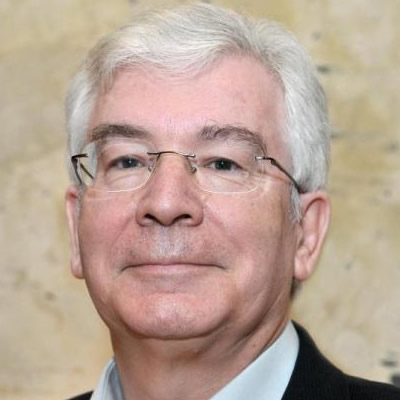
José Luis Molinuevo is Professor of Aesthetics and Theory of the Arts at the University of Salamanca in the Department of Philosophy, Logic and Aesthetics. He received his PhD in Philosophy from the Complutense University of Madrid and carried out carried out research and further studies at the Universities of Bonn and Heidelberg. He has been vice-rector of the University of Salamanca and director of the Ortega y Gasset Foundation’s Centre for Ortega y Gasset Studies. His teaching and research work focuses on the experience of thinking in images as the core of new human technologies.
“What we call thought in images. To try to understand (without emotional concepts, philosophy) this world (time, space) by finding, producing, mixing, images, not reading them (semiotics) or imagining them (Platonism), but experiencing them (aesthetic modernity). Thinking in images is the map of polyaesthetic experiences at a given moment. That’s all”. https://joseluismolinuevo.blogspot.com/
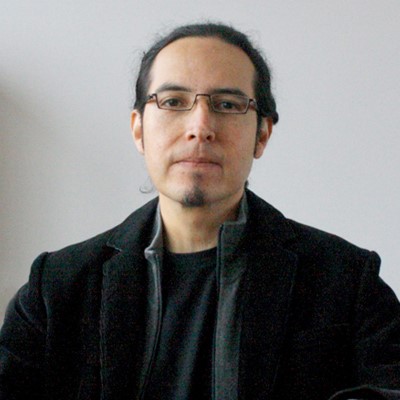
Everardo Reyes is an Associate Professor in the Department of Information Sciences at Université Paris 8 Vincennes-Saint-Denis, France. He co-directs the MA/MSc in Digital Humanities and he is vice-president of the university for digital matters. He is a member of the Paragraphe Lab and associate member of the Cultural Analytics Lab. His research is focused on the fields of information design, media art, hypermedia, and digital culture. He combines semiotic theory with experimental practice using software, programming languages, and visual computing techniques. He has organized several congresses and exhibitions dedicated to computer art, digital culture, and web studies. He served as the ACM SIGGRAPH 2019 Art Papers Chair and participates actively in the International Symposium of Electronic Arts (ISEA). He has already published more than ten books, including the monograph “The image-interface: graphical supports for visual information” (Wiley/ISTE, 2017) and various edited and translated works. https://www.ereyes.net/
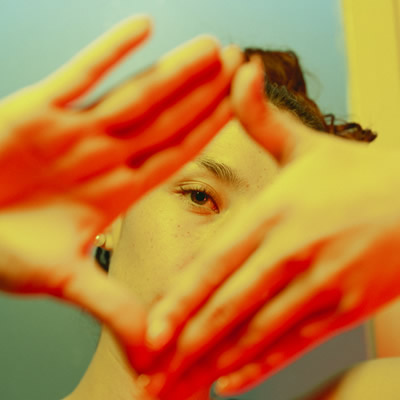
Doreen A. Ríos (Toluca, México, 1992) is an independent curator and researcher. His work focuses on digital art, post-digital practices and new materialities. Founder of [ANTI]MATERIA, an online platform dedicated to the research and exhibition of art produced through digital media. She was chief curator of the Center for Digital Culture from 2019 to 2021.
Graduated from the Master’s Degree in Contemporary Curation from Winchester School of Arts, specializing in digital cultures, and from the Bachelor of Architecture from Tec de Monterrey.
She is currently developing a collective research project for the British Council collection, is part of the international selection committee for the Lumen Art Prize and is a mentor for the Full Spectrum Curatorship Program of the IMPAKT Festival in the Netherlands.
At the same time, she is a VJ at Minipixel, a researcher at the Terrestrial Collective Consciousness Unit, and a teacher at CENTRO and at the SAE Institute. https://doreenrios.com/
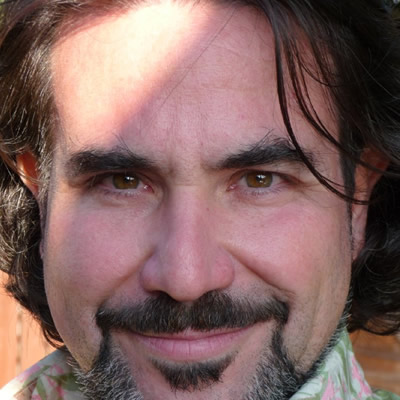
Edward A. Shanken writes and teaches about the entwinement of art, science, and technology with a focus on interdisciplinary practices involving new media. He is Associate Professor at UC Santa Cruz, where he has served as Director of the Digital Arts and New Media (DANM) MFA program. Prior academic posts include: Associate Professor, Digital + Media MFA program at RISD; Associate Professor, DXARTS Ph.D. program at University of Washington; Universitair Docent, New Media MA program, University of Amsterdam; Executive Director, Information Science + Information Studies, Duke University. Fellowships include the National Endowment for the Arts and American Council of Learned Societies. Dr. Shanken earned a Ph.D. and MA in Art History at Duke, an MBA at Yale University, and a BA at Haverford College.
Recent publications include essays on art and shamanism, sound art and ecology, art historiography, and bridging the gap between new media and contemporary art. His critically praised survey, Art and Electronic Media (Phaidon Press, 2009) has been expanded with an extensive, multimedia Online Companion: www.artelectronicmedia.com. His book, Inventing the Future: Art, Electricity, New Media was published in Spanish in 2013 as Inventar el Futuro, with Portuguese and Chinese translations forthcoming in paper and E-text. He edited and wrote the introduction to a collection of essays by Roy Ascott, Telematic Embrace: Visionary Theories of Art, Technology and Consciousness (University of California Press, 2003). His most recent book is Systems (Whitechapel/MIT Press, 2015). http://artexetra.com
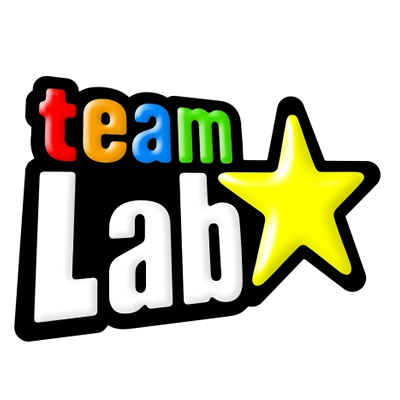
teamLab (f. 2001) is an international art collective, an interdisciplinary group of various specialists such as artists, programmers, engineers, CG animators, mathematicians and architects, whose collaborative practice seeks to navigate the confluence of art, science, technology, and the natural world. teamLab aims to explore the relationship between the self and the world and new perceptions through art.
teamLab’s works are in the permanent collection of the Museum of Contemporary Art, Los Angeles; Art Gallery of New South Wales, Sydney; Art Gallery of South Australia, Adelaide; Asian Art Museum, San Francisco; Asia Society Museum, New York; Borusan Contemporary Art Collection, Istanbul; National Gallery of Victoria, Melbourne; and Amos Rex, Helsinki. https://www.teamlab.art/